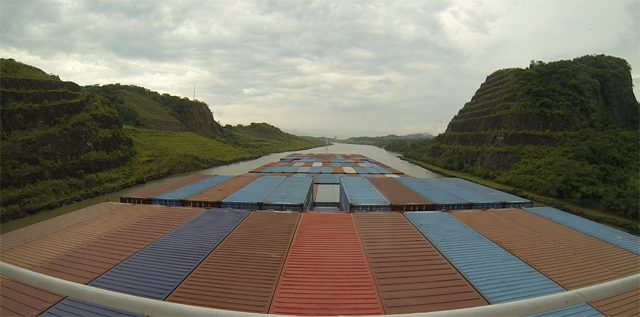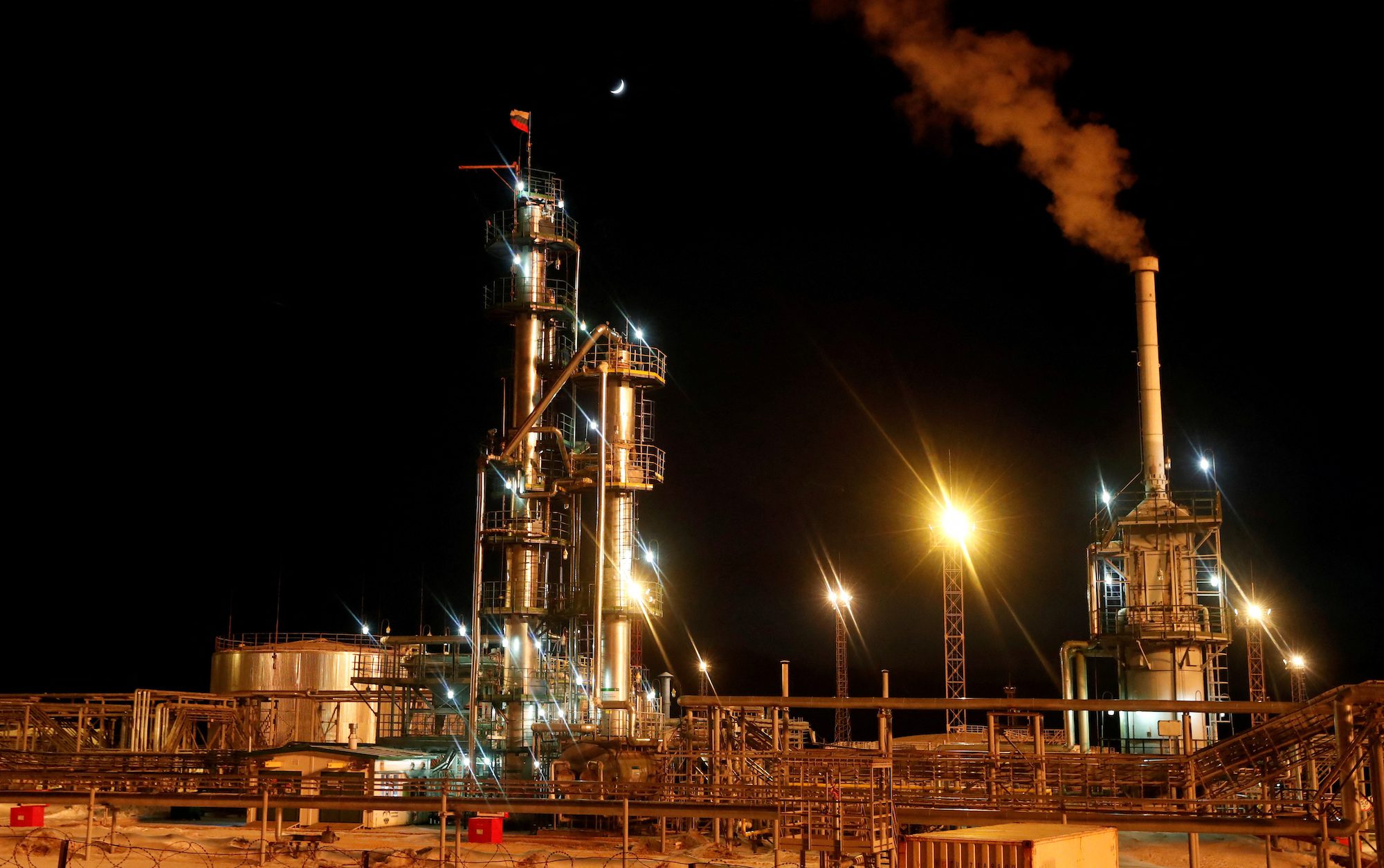Image (c) Panama Canal Pilots Union/R.Salas
By Captain Rainiero Salas, President – Panama Canal Pilots Association
In 2006, the Panama Canal Administration determined the Canal needed to be expanded in order to remain competitive. A detailed Master Plan for the expansion project was subsequently developed by the Panama Canal Authority and disseminated throughout the country.
A 2006 referendum approved the expansion of the Panama Canal with a cost of 5.25 billion US dollars. The Plan had been approved and funded, yet was missing one critical input – that of the very ship pilots who would ensure the safe daily operation of the vessels transiting the Canal.
In the Panama Canal, experienced pilots take full control of the navigation and movement of all vessels transiting Canal waters. This, by itself, makes our job as well as the operations, unique around the world.
The role of the pilots has been crucial in maintaining the record levels of safety that the Panama Canal has enjoyed in its operations, especially since the turnover of control back to Panama.
Training is extensive for the Panama Canal pilots. It is almost entirely conducted in-house, and mostly through hands on training (i.e. pilots in training go on board vessels with qualified pilots and maneuver them under supervision). We also receive simulation and theoretical training to ensure a comprehensive understanding of the challenges Canal operation presents.
Our experience has made it clear that there are major operational issues we will face with the expanded Panama Canal. For instance, pilots will maneuver transiting vessels within the locks with the assistance of tugboats under our supervision, instead of today’s standard locomotives.
This is a major issue, as it represents a change from the current highly successful method of moving vessels, as the Panama Canal Administration has dictated to the pilots that we must adopt the new tugboat based system. Further, the pilots have been given strict guidelines detailing how this operation will take place; including the number of tugboats required to move each vessel through the locks – without input from the pilots.
RELATED: Expanded Panama Canal Fundamentally Flawed, Pilot Says
In doing so, the Panama Canal Administration decided, unilaterally, to disregard 100 years of successful experience transiting vessels through the locks safely and efficiently using locomotives, to implement a positioning system within the new locks based on the use of tugboats. This system is, in our view, significantly less safe and less efficient than the current positioning system using locomotives. The movement of Post-Panamax vessels through the new locks without damage to vessel or crew will be one of the main challenges our pilots will face.
Another major issue is the navigation of vessels through the narrow channels of the Canal. Studies made by the Panama Canal Administration before the referendum concluded that the most critical and narrow channel of the Canal, known as the Gaillard Cut, would have to be widened to 715 feet (218 meters) in order for a post-Panamax vessel of 150 feet (45.6 meters) beam to safely navigate in one direction, without meeting opposing traffic. In May of this year, the administration informed the pilots of their new decision to have two vessels of 160 feet (49 meters) in beam meeting in the Gaillard Cut, without widening this channel an inch more. To our regret, when we requested the hydrodynamic studies that supported this imposition, the Panama Canal Administration answered that the studies were not available as they had not been prepared.
These are two critical challenges the expansion project faces, yet there are more. The issues stem from the fact that pilots were not consulted during the development of the expansion project and our input was never requested – either initially or during the subsequent eight years of development.
The administration plans to impose what we consider high risk operating procedures in the Canal. The Panama Canal Administration further has failed to involve us in determining how the massive operation will be accomplished. Instead, they intend to require us to implement a system that does not have the technical endorsement of the professionals who have been transiting vessels through the Panama Canal successfully for a century.
We will be faced with an operation that, in our opinion, is not nearly as safe or efficient as it is with the time – proven use of locomotives. The Panama Canal and our country cannot afford to get this wrong. The Canal is critical to the economic success of our country, a success that cannot be at the stake of the safety of the vessels and those who ensure their successful transit.
Panama Canal pilots are held legally responsible for ensuring the safe operation, as past events have proven. As of last year, three of our colleagues have been charged with manslaughter due to the death of a Panama Canal linehandler during a relay operation inside the locks. Although to the best of our knowledge, we understand, the pilots did not have any control over what happened on board the vessel that day, it is clear that we are held legally responsible at first instance for the navigation and movement of the vessels in the Canal.
In addition to the Panama Canal Administration’s unilateral decision to switch to tugboats instead of locomotives to date the Panama Canal Administration has not provided us with a structured program to train pilots on the new system. These locks are unique in the Post-Panamax world – with three chambers, they are far more complex than the existing one chamber locks. Training will be difficult without an established standard to guide us; the Administration must give its best efforts to prepare us for such a high risk task. The pilots are committed to improving the processes and will rely on our expertise and innovation to accomplish safe transits, but we must have an adequate training program to address the vast challenges in operations.
The Administration has continuously discarded our claims, qualifying them as leveraging within the typical struggles that arise when negotiations are about to begin, used to force the Administration to capitulate to our demands and aspirations in the negotiating table. Due to our increasing concern with the issues mentioned and with the way the Administration is handling Canal operations, the Panama Canal Pilots’ Union sent a note to the Administrator informing him of our decision NOT to initiate negotiations of the Collective Bargaining Agreement in 2014 so that they can concentrate on keeping the Canal safe and efficient.
The pilots know that the challenge will be great and the Administration has created a high level of complexity by imposing what in our view are high-risk navigation rules and lockages. Regardless, we are eager to bring our expertise and technical input, as we work together with the Administration to solve these challenges.
Yet in spite of our permanent disposition to offer significant contributions, the Panama Canal Administration has not shown genuine interest in our proposals and concerns raised. Instead, they have limited themselves into seeking advice of “office pilots”, some of whom have not transited the Canal in more than a decade. That lack of experience and expertise in the daily operations of the Canal, contrasts tremendously with those of us performing an average of 160 transits a year each.
Considering that the Panama Canal Pilots’ Union concerns on what we consider relevant issues have not been properly considered by the Panama Canal Administration, any failures in the new locks, or in the expanded Canal, whether in accommodating certain vessels due to their dimensions, or by their market segment or by lack of throughput, shall be of the sole responsibility of the Panama Canal Administration, since the pilots were not part of any of the decisions made on these matters.
Still, we want to and are willing to make the most of what the Administration, on its own, decided to build. We are committed to the success of the Panama Canal expansion, to the safety of the operations, as well as looking out for the well-being of the pilots responsible for bringing vessels through – and with them, the economic hopes of a nation.

 Join The Club
Join The Club











